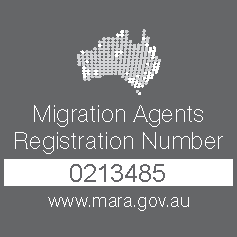International students are an important part of the Australian community. Since the beginning of the pandemic, international students have been unable to enter Australia to study or encouraged to return to their home country. When it comes to allowing international arrivals into Australia, international students are low on the priority list unless they fulfill certain criteria which will make them eligible for an individual travel exemption.
What are the criteria which enable international students to enter Australia?
International students may be eligible to enter Australia if:
– They are part of an International Student Arrival Plan
– They are in their final three years of a University Medical Degree with a confirmed placement commencing in the next two months
– They are completing year 11 or 12 with an endorsement from the Department of Education and the relevant state government
– They are a student in the final two years of a dental, nursing or allied health profession where they also have a placement in the next two months
In the case of students studying in the medical field, placement is an important aspect of their course and as such needs to be completed on-site in Australia.
What is an International Student Arrival Plan?
International Student Arrival Plans are developed by some state and territory governments to assist in the return of international students to Australia. International Student Plans are only available to a limited number of students, nominated by their education institution and must be endorsed by the Australian Government before it can be implemented.
All students participating in an International Student Arrival Plan must hold a valid student visa (subclass 500). Under an International Student Arrival Plan, students do not need to apply for a travel exemption as the relevant state or territory will apply for exemptions on behalf of students nominated under their approved plan.
Here are some examples of circumstances that international students may find themselves in and whether they would be eligible to receive an exemption allowing them to study in Australia.
Scenario 1
I’m a second-year nursing student and feel that it would be more beneficial for me to be studying in Australia on campus. Can I get a travel exemption?
In this instance the request for a travel exemption would be denied.
Scenario 2
I am a year 11 student. I have a letter from the Department of Education sponsored by the Queensland Government. Do I qualify for a travel exemption?
A travel exemption would be granted on this occasion.
Scenario 3
I am a Dental student in my final year. I have a placement with an Australian institution commencing next month. Am I eligible for a travel exemption?
A travel exemption would be granted in these circumstances.
Scenario 4
I’m about to start my degree in Medicine. I want the Australian University experience and to meet new friends. Can I get an exemption?
This is not grounds for a travel exemption.
If you are overseas and hold a student visa for study in an Australian institution, consider postponing your study if possible. If you are planning to use your student visa as a pathway to permanent residence in Australia, it would be far more beneficial to hold off until you can study in Australia. Studying on a student visa and then potentially working in Australia while on a graduate visa can earn you extra points towards your permanent resident application. A registered migration agent would be able to assist in these matters.
If you would like to learn more about student visas or any other aspect of migration, contact Visa Solutions Australia on 1800 828 008.
Travel Exemptions
While Australian borders are currently closed due to the COVID-19 pandemic, travel exemptions may apply under the following circumstances:
– A traveller has a compassionate or compelling reason to visit Australia
– Overseas workers holding a Subclass 482 or 400 visa are required to undertake a job in Australia that cannot be filled by a local employee
Visa Solutions Australia has been successful in acquiring a broad range of exemptions, from critical workers to those needing to travel on compassionate grounds.







